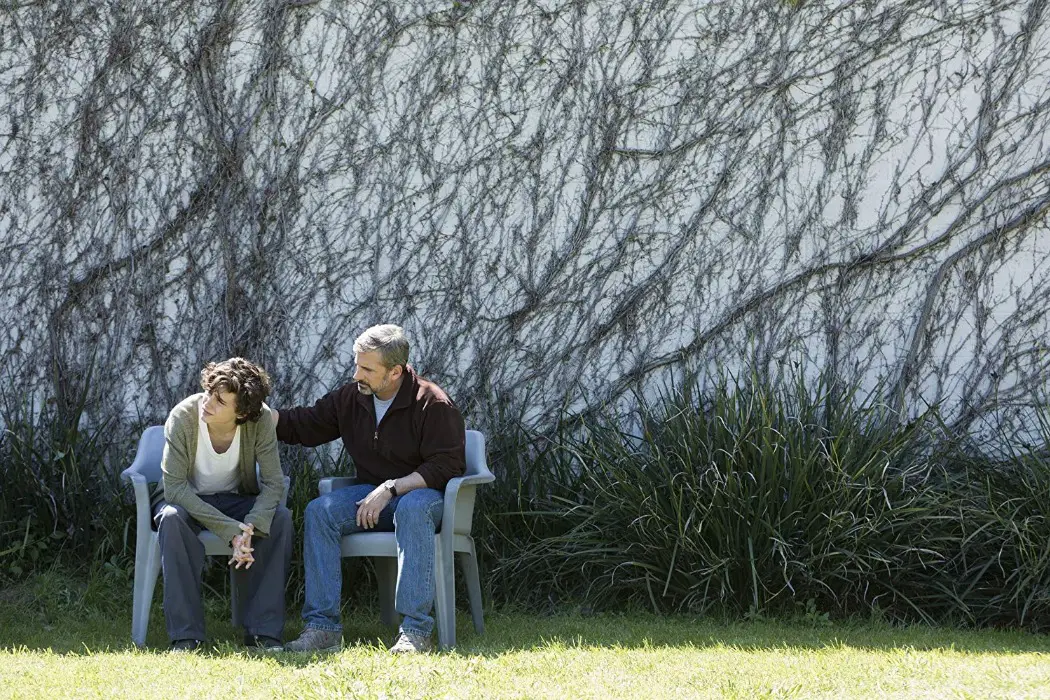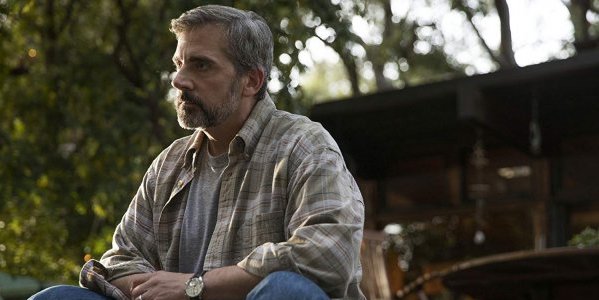BEAUTIFUL BOY: A Well-Meaning Addiction Melodrama

Julian Medranda is a pretentious movie nerd and former Arts…
When I discovered around the age of 10 that a close family member who I lived with was addicted to black tar heroin, was stealing from our family, and was kicked out to live on the street, I rationalized it in the way any kid would. There’s good – us – and there’s bad – her, and people like her. Good people don’t steal, and good people don’t lie, those are things that bad people do. It’s a binary logic, far removed from any complex understanding of addiction and seriously lacking in empathy that I would develop with age. In truth, this family member was a good person, deathly ill and in need of help the way many suffering from substance abuse are. Such an illumination is reached in Beautiful Boy, but only after an excruciating tour of the anguish that companies loving someone addicted to hard drugs.
Directed by Felix Van Froeningen, Beautiful Boy is adapted from the memoirs of father and son David and Nic Sheff, detailing their experiences with Nic’s drug addiction. At the risk of sounding trite, the heart of Beautiful Boy is the love between father and son. Steve Carell is David, father and beacon of support to Timothee Chalamet’s precise embodiment of the troubled addict, Nic, and though their love and turmoil is a more privileged one free from the anxieties of working class households – the Sheffs are a wealthy, well-to-do family who can afford to not worry too much about the price of rehab – it is earnest and instantly finds a center from which audiences can engage with emotionally.
Outside of this simple conflict, there is little in the way of narrative depth – for better or worse. There’s some emotional puppeteering at play that may be read as preachy or overly self-indulgent in its cautionary tale, but it’s in service of a true account on the hell of drug addiction. Where Beautiful Boy lacks some narrative ambition it makes up for in emotional depth, and it takes time to let audiences wallow in both character’s predicaments.
A House Divided
On the one hand is David, a freelance journalist who not only has Nic to worry about, he juggles the role of husband to Karen (Maura Tierney) and father to their two children. Carell’s emoting is brilliant, marking a career high point with a muted display of love and agony fighting for dominance in a man struggling to save his son.
A disproportionate amount of David’s attention goes toward Nic, which as the film progresses wears him down and places Karen and the children into difficult situations. Nobody is ever against Nic per se – Karen is a loving stepmother and the moments afforded to Nic and his siblings are sweet blips of respite in a melodrama otherwise painted by forlorn hope. But the gradual deterioration in support as a result of the awful cycle of relapse and recovery, and the lies and theft that come with it, is an all-too-real tragedy.

Conversely, Nic bears the burden of the angsty, mercurial romantic. Unsatisfied with the Bukowskis and Fitzgeralds of the world to imbue his life with meaning, he finds a warped purpose in crystal meth and heroin driven by a vicious cycle of shame, regret, and instant gratification. Through flashbacks, we see him clinging to his father from an early age, and the substantial changes in his personality throughout years of addiction. He lies and he steals, but he’s an empathetic and spirited character whose recovery always seems to lie on the horizon despite the countless relapses he undergoes.
Like Carell, Chalamet is tremendous. A lesser actor would burst at the seams to fit the description of an addict, but he is convincingly desperate, grounded in this seemingly lived-in performance.
Stylish, if familiar
The trouble with movies expressly about drug addiction is there is little room to say anything beyond aphorisms previous works have already touched upon. Beautiful Boy offers little in the way of fresh insight, but it provides a closer vantage point from which we can participate through the relationship of David and Nic.
This is partly due to the cunning editing, which allows the film to cut straight into the essential tale of a father’s effort to save his son. Mogwai’s “Helicon 1” saunters by the film’s opening minutes to beautiful effect as it visually communicates the bare essentials for a film of its nature. And when the song swells, so does the film’s emotional resonance, snapshotting the pair’s relationship as fragile despite a history of intimacy.

At other emotional intervals, the film plays the part of music video, emphasizing mood over any particular set of events. A frenetic crash-and-burn type sequence set against Nirvana’s “Territorial Pissings,” a serene country road drive carried by Sigur Rós’ “Svefn-g-englar” – moments like these are rich in style and incorporate music effectively to communicate what words would be too dull to.
Sometimes the film’s uncommon storytelling works against it though, namely during flashbacks and fast forwards which often muddy the presentation and pacing. Sweet as some may be, changes in chronological telling disrupt rather than clarify. On their own, these scenes out of time work fine, but their placement is questionable in a film demanding that the audience sticks with the characters as they’re in the rough.
Beautiful Boy: Conclusion
Beautiful Boy is at once a simple story of a dying boy and his father’s desperation, and a complex addressing of the difficulties in achieving sobriety. It means well, and it does well by its cinematic means as a tearjerking melodrama through its style – even if the style overburdens the narrative flow at times. If the occasionally heavy handed appeals to emotion won’t do the film any favors, then the focused performances from Carell and Chalamet certainly will.
Beautiful Boy is out now in the US, and will be released in the UK on January 18. All international release dates are here.
Does content like this matter to you?
Become a Member and support film journalism. Unlock access to all of Film Inquiry`s great articles. Join a community of like-minded readers who are passionate about cinema - get access to our private members Network, give back to independent filmmakers, and more.
Julian Medranda is a pretentious movie nerd and former Arts & Entertainment Editor for UC Riverside's Highlander Newspaper. He spends his time earning peanuts as a Behavioral Interventionist in Riverside, CA and singing to Kate Bush, Young Thug, and Joyce Manor in the car.












